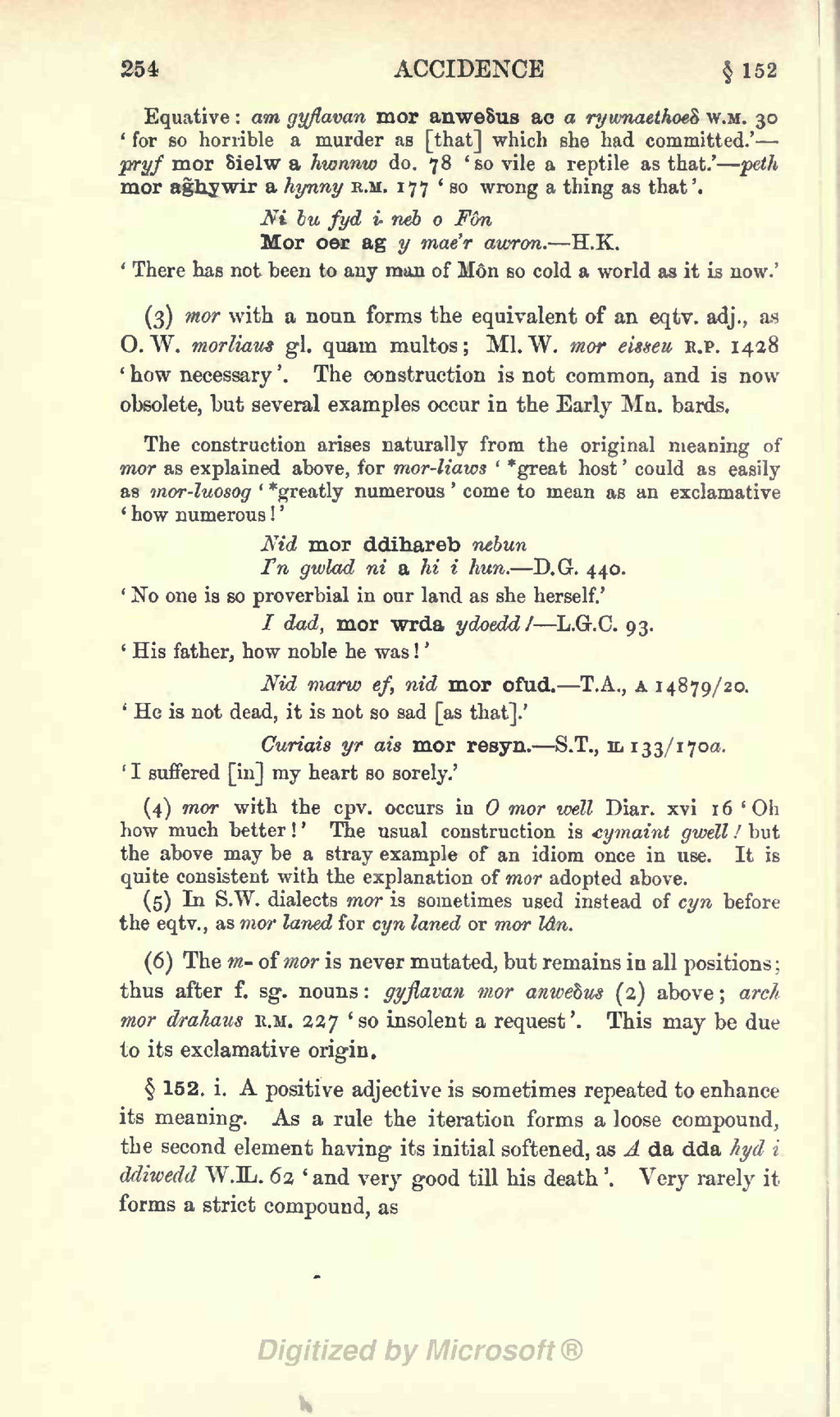Equative: am gyflavan mor anweẟus ac a rywnaethoeẟ w.m. 30 ‘for so horrible a murder as [that] which she had committed.’—pryf mor ẟielw a hwnnw do. 78 ‘so vile a reptile as that.’—peth mor ag̃hywir a hynny r.m. 177 ‘so wrong a thing as that’.
- Ni bu fyd i neb o Fôn
- Mor oer ag y mae’r awron.—H.K.
‘There has not been to any man of Môn so cold a world as it is now.’
(3) mor with a noun forms the equivalent of an eqtv. adj., as O. W. morliaus gl. quam multos; Ml. W. mor eisseu r.p. 1428 ‘how necessary’. The construction is not common, and is now obsolete, but several examples occur in the Early Mn. bards.
The construction arises naturally from the original meaning of mor as explained above, for mor-liaws ‘*great host’ could as easily as mor-luosog ‘*greatly numerous’ come to mean as an exclamative ‘how numerous!’
- Nid mor ddihareb nebun
- I’n gwlad ni a hi i hun.—D.G. 440.
‘No one is so proverbial in our land as she herself.’
- I dad, mor wrda ydoedd!—L.G.C. 93.
‘His father, how noble he was!’
- Nid marw ef, nid mor ofud.—T.A., a 14879/20.
‘He is not dead, it is not so sad [as that].’
- Curiais yr ais mor resyn.—S.T., Ỻ 133/170a.
‘I suffered [in] my heart so sorely.’
(4) mor with the cpv. occurs in O mor well Diar. xvi 16 ‘Oh how much better!’ The usual construction is cymaint gwell! but the above may be a stray example of an idiom once in use. It is quite consistent with the explanation of mor adopted above.
(5) In S.W. dialects mor is sometimes used instead of cyn before the eqtv., as mor laned for cyn laned or mor lân.
(6) The m- of mor is never mutated, but remains in all positions: thus after f. sg. nouns: gyflavan mor anweẟus (2) above; arch mor drahaus r.m. 227 ‘so insolent a request’. This may be due to its exclamative origin.
§ 152. i. A positive adjective is sometimes repeated to enhance its meaning. As a rule the iteration forms a loose compound, the second element having its initial softened, as A da dda hyd i ddiwedd W.Ỻ. 62 ‘and very good till his death’. Very rarely it forms a strict compound, as
